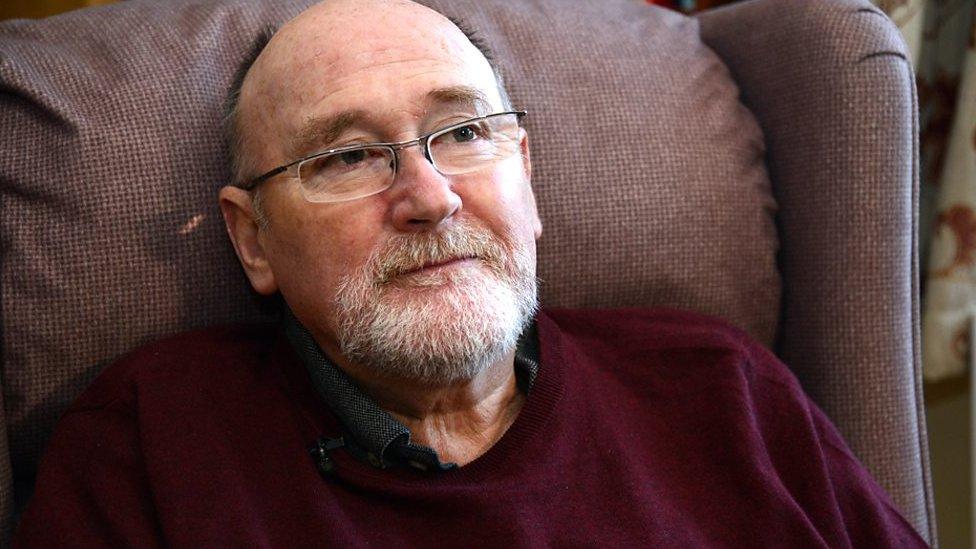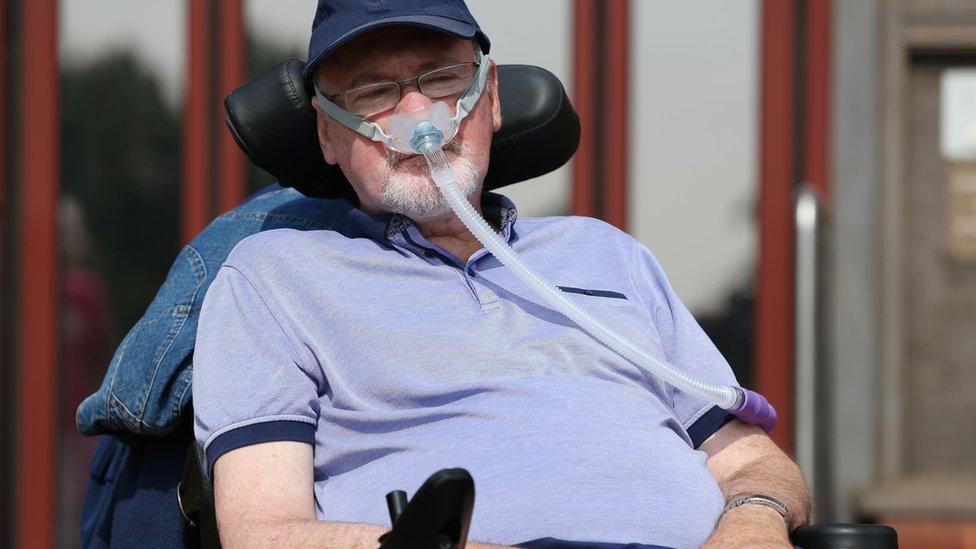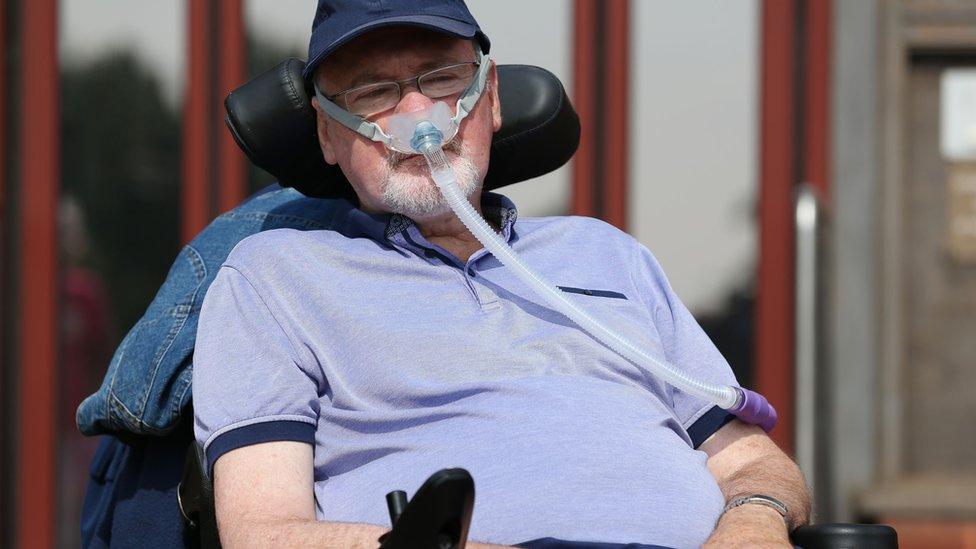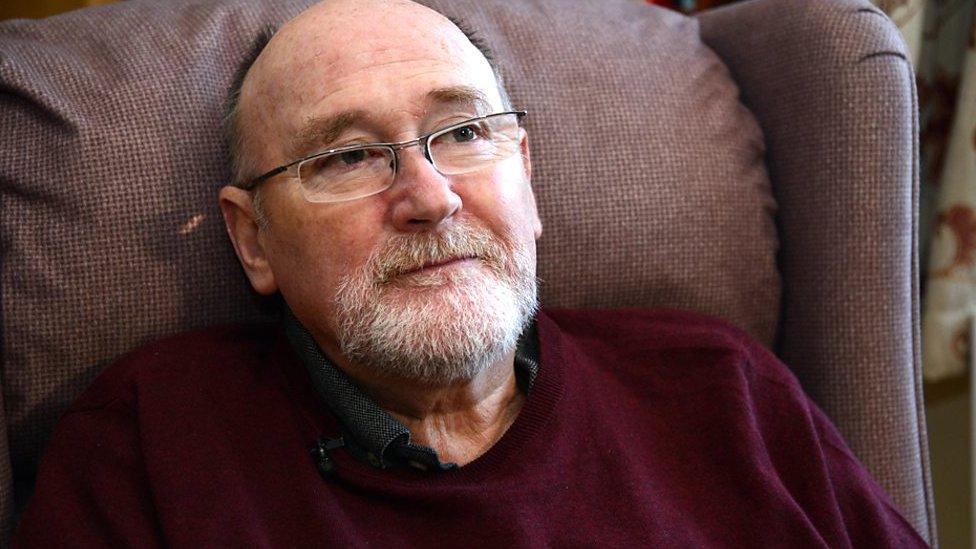Terminally ill Noel Conway loses Supreme Court appeal
- Published

Noel Conway was diagnosed with motor neurone disease in 2014
A terminally ill man has lost a legal battle at the UK's highest court over his right to die.
Noel Conway, 68, suffers from motor neurone disease and only has movement in his right hand, head and neck.
The former lecturer from Shrewsbury lost a challenge at the Court of Appeal in June after his case was rejected by the High Court.
Supreme Court judges rejected his bid to appeal against the ruling, as his chance of success was "not sufficient".
It means Mr Conway's case cannot proceed any further.
In a joint statement the judges, Lady Hale, Lord Reed and Lord Kerr, said they had reached their decision "not without some reluctance".
Mr Conway, who was too ill to attend the hearing in London, said it is "barbaric" that he must choose between "unacceptable options" to end his life.

Mr Conway said his only option is to remove his ventilator, which he relies on 23-hours a day
He said the ruling was "extremely disappointing", adding it is "downright cruel" to be refused a right to die.
"The only option I currently have is to remove my ventilator and effectively suffocate to death under sedation," he said. "To me this is not acceptable."
Instead, he wants medical assistance to die when he has less than six months to live, while he still has the mental capacity to make a "voluntary, clear, settled and informed" choice.

Analysis
Fergus Walsh, medical correspondent, BBC News
Noel Conway wants control of his death, and for a doctor to prescribe him a lethal dose of drugs to take once he is deemed to have less than six months to live.
But section 2 of the 1961 Suicide Act makes this illegal and punishable by up to 14 years in prison.
Mr Conway argued the current law is an unjustifiable interference with the right to respect for private life under the European Convention on Human Rights.
The three Supreme Court judges said it was open to them to declare the current law was incompatible with the convention, and leave it to Parliament to decide what to do about it.
But the judges will have taken into consideration the overwhelming vote by MPs three years ago, to reject proposals to allow assisted dying.
Ultimately, while judges are there to interpret the law, it is only Parliament which can make them.

"No-one doubts that the issue is of transcendent public importance," the judges said.
"It touches us all... we all have to contemplate our own death."
However, the court ruled Mr Conway's chances of a successful appeal were not sufficient "to justify our giving him permission to pursue it, with all that that would entail for him, for his family, for those on all sides of this multi-faceted debate, for the general public and for this court".
Dignity in Dying, which supports Mr Conway, said it will now "turn our attention back to parliament".
- Published27 June 2018

- Published5 October 2017

- Published17 July 2017